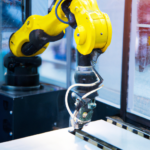Introduction:
Neural networks are an exciting technology that has a lot of potential in healthcare. They are a type of machine learning that is modeled on the structure of the human brain. Neural networks are capable of learning from data, recognizing patterns, and making predictions. In this article, we will explore ten mind-blowing uses of neural networks in healthcare.
Predicting patient outcomes
One of the most promising applications of neural networks in healthcare is predicting patient outcomes. Neural networks can be trained on large amounts of patient data, including demographics, medical history, and lab results. This data can be used to predict the likelihood of a patient developing certain conditions, such as diabetes or heart disease. Predictive analytics can help doctors make more informed decisions about patient care.
Diagnosing diseases
Neural networks can also be used to diagnose diseases. They can be trained on medical imaging data, such as X-rays, CT scans, and MRIs. Neural networks can learn to recognize patterns in this data that are indicative of certain diseases, such as cancer or Alzheimer’s disease. This can lead to earlier and more accurate diagnoses, which can improve patient outcomes.
Personalized treatment plans
Neural networks can be used to create personalized treatment plans for patients. They can be trained on patient data, including medical history, genetics, and lifestyle factors. This data can be used to develop treatment plans that are tailored to the individual patient’s needs. This can lead to better outcomes and fewer side effects.
Drug discovery
Neural networks can also be used in drug discovery. They can be trained on large datasets of chemical compounds and their properties. This data can be used to predict the properties of new compounds and identify potential drug candidates. This can accelerate the drug discovery process and lead to more effective treatments.
Remote patient monitoring
Neural networks can be used to monitor patients remotely. They can be trained on data from wearable devices, such as fitness trackers or smartwatches. This data can be used to monitor patients’ health in real-time and identify potential health issues before they become serious. This can reduce hospitalizations and improve patient outcomes.
Electronic health record analysis
Neural networks can be used to analyze electronic health records (EHRs). They can be trained on large amounts of EHR data, including medical history, lab results, and medication lists. This data can be used to identify patterns and trends that may be indicative of certain conditions. This can help doctors make more informed decisions about patient care.
Medical image analysis
Neural networks can be used to analyze medical images, such as X-rays, CT scans, and MRIs. They can be trained to recognize patterns in these images that may be indicative of certain conditions, such as tumors or fractures. This can lead to earlier and more accurate diagnoses.
Clinical trial optimization
Neural networks can be used to optimize clinical trials. They can be trained on data from previous trials, including patient demographics, treatment protocols, and outcomes. This data can be used to predict which patients are most likely to benefit from a particular treatment and which treatments are most likely to be effective. This can improve the efficiency and success rate of clinical trials.
Medical chatbots
Neural networks can be used to create medical chatbots. These chatbots can answer patients’ questions about their health and provide advice on self-care. They can also identify potential health issues and recommend appropriate medical care. This can improve access to healthcare and reduce the burden on healthcare providers.
Predictive maintenance
Neural networks can also be used for predictive maintenance in healthcare. They can be trained on data from medical equipment, such as MRI machines or ventilators. This data can be used to predict when equipment is likely to fail and schedule maintenance before a failure occurs. This can reduce downtime and prevent equipment failures, which can be critical in life-threatening situations.
Conclusion:
Neural networks have a lot of potential in healthcare. From predicting patient outcomes to diagnosing diseases, to creating personalized treatment plans, there are many applications of this technology that can improve patient outcomes and reduce the burden on healthcare providers. By harnessing the power of neural networks, we can develop more efficient and effective healthcare systems that are better equipped to meet the needs of patients. As this technology continues to evolve, we can expect to see even more mind-blowing uses of neural networks in healthcare in the years to come.


